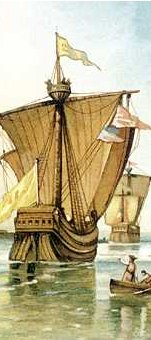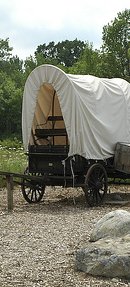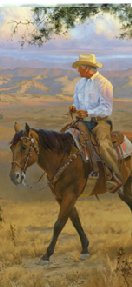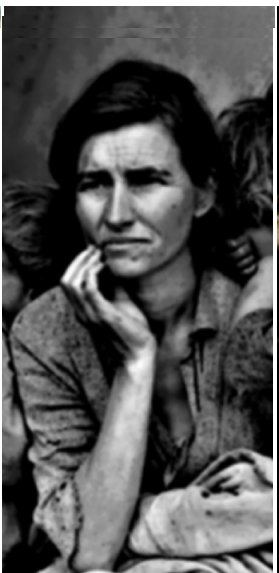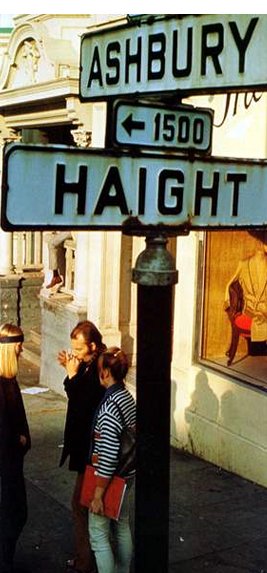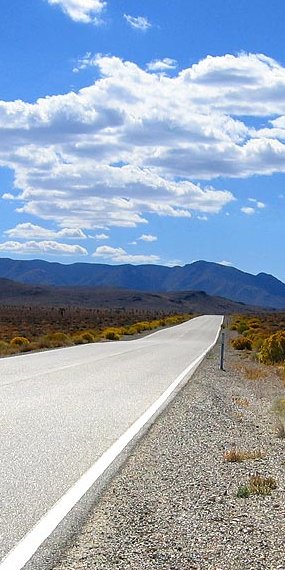Doughface California Shirley Wu
Leonard L. Richards received his degrees from the University
of California, Berkeley and Davis, and now teaches history at the University
of Massachusetts. He won the 1970
American Historical Association��s Albert J. Beveridge
Award for Gentlemen of Property and Standing:
Anti-Abolition Mobs in Jacksonian California,
1987 Pulitzer Prize finalist for The Life and
Times of Congressman John Quincy Adams, and 2001 second-place Lincoln
Prize for The Slave Power: The Free North and
Southern Domination, 1780-1860.
��The roots of this book go back to
my childhood,�� author Leonard L. Richards says in his book, The California
Gold Rush and the Coming of the Civil War.1
A good Californian, born and breed in California, and a graduate of its
school system, he expresses genuine surprise when, in the process of
researching other topics, he accidentally uncovers that not only did California��s
statehood seriously exacerbate the relation between the antebellum North and
South, many of his home state��s founding fathers actually sided with the latter
in that long and painful conflict. Muses Richards: ��Either such details had
been omitted from the curriculum, or I simply had not been paying attention.�� 2
He probably did paid attention. Most textbooks�Xif not all�Xnever mention California��s
ignominious role aside from that brief interlude in 1850 that exposes the
fragileness of the North-South equilibrium. In Richards��s book, however, he
links the events together, revealing California��s
active role in the coming of and during the Civil War.
In the Prologue and Chapter 1,
Richards begins his tale by an 1859 duel in which the state supreme
court chief justice David S. Terry shot to death Senator David
Broderick. Their conflict, however, merely embodied part of a larger struggle
that originated in January of 1848, when a sawmill construction overseer first discovered
gold in the foothills of the Sierra Nevada. For the
first couple months, the news was dismissed as nonsense by the two San
Francisco weeklies, The Californian and The California
Star. During this while, however, the Star��s entrepreneur owner Sam
Brannon quietly invested store and hotel near the site, before coming back and
shouting, ��Gold! Gold! Gold from the American River!��
3. Instantaneously, San Francisco
became a ghost town depleted of its male population. The military was
especially hard hit, with so many sailors and soldiers deserting that a captain
had to cook his own breakfast, ��in a smoky kitchen, grinding coffee, toasting a
herring, and peeling an onion.�� 4 The news traveled faster by sea,
reaching Latino America, Canton, and Sydney before reaching the East Coast, but
once affirmed, it rescued the then President James K. Polk by justifying the
Mexican War. Around the Cape Horn, through the Isthmus
of Panama, or across the continent, young males flocked to the
gold country in companies, braving the hazards presented along the way, and benefited
the pockets of their shippers. Among those was Broderick, a young anti-Tammany
Democrat. After amassing a fortune from minting coins, the Irish turned his eye
to the real interest of his life�Xpolitical power, and established a modified
Tammany system in San Francisco
that was to be his stronghold for many years.
Meanwhile, in the next two chapters,
Broderick��s political nemesis William McKendree Gwin also arrived. A thorough southerner, the Mississippi
Democrat long had his eye set on becoming an U.S.
senator. Other slave owners fantasized about transporting their slaves from the
barren soil of the east to toil the gold mines of the west. However, it soon
became apparent that California
was destined to be a free state.
Local miners were hostile to slave competition and absentee owners, and they
enforced their own codes. Very few Southerners were rash enough to bring their
slaves, anyways; the few that did and ignored the local rules risked slaves
running away and terrorism from their neighbors. Sensing the atmosphere, the
delegation to the state��s constitutional convention unanimously outlawed slavery;
for, as Gwin summed up: ��In California,
labor is respectable.�� 5 The bachelors in the convention secured the
passage of married women��s property rights, following New
York��s liberal reform, in the hope of attracting
wealthy women to the male dominated state. They were furthermore united against
corporations. The debates were more heated at other issues. Gwin
moved for a large California
while lead by Morton M. McCarver racists worried that
Southerners would dumped free blacks in their fledgling state, ��the greatest
calamity that could befall California.��
6 However, the Yuba representative William Shannon prevailed at
last. The resulting constitution passed the election easily, though with a
pathetically low turnout of 12% of the eligible voters.
In Chapters
4 through 6, the statehood application convulsed the national politics and
catalyzed the sectional conflicts. From the beginning California belonged to the Democratic Party. An
observer noted that Broderick��s machine made ��very sure not to have a whig nominated to fill any office.��
7 John C. Fremont and Gwin became the
state��s first senators. By then the Chivalry faction�Xa group of Southern
politicians�Xwas already existent in Californian politics and backing Gwin. Upon receiving the statehood application, the
Thirty-first Congress was in an uproar. The fact that Gwin
was a staunch southerner did not pacify those who feared losing the balance in
the Senate or those who perceived the application as ��Yankee fanatics[��]��
plot to secure the Wilmot Proviso. 8 Horrified, the aged ��Great
Pacifier�� Henry Clay drew up a compromise of eight resolutions, barely pushed
through by the ��Little Giant�� Stephen A. Douglas. But Southern extremists were
still fuming. Mississippi��s militant governor John A. Quitman
condemned the compromise and even considered the ��peaceable secession of the
aggrieved states.�� 9 Interest to overtake Cuba and annex it as one�Xor
several�Xslave state soared, attempts to split California revived, and plan to
construct a transcontinental railroad became part of the sectional struggle,
each region vying to make the gold country its appendage. Consequently, James
Gadsden negotiated to buy a strip of land from Mexico and Douglas passed the catastrophic Kansas-Nebraska
Act.
In Chapters 7 and 8and the Epilogue, the focus shifted back home. The Chivs were gaining the upper hand in California.
After Fremont��s term expired, a
year went by before the state settled down on another Chiv,
John B. Weller. During the interlude Gwin gained a
monopoly in federal patronage, with which he secured his southern friends in
offices. Between 1854-56, nativism
forces under the Know-Nothing Party temporarily swept California,
while the Republican Party, labeled as ��nigger worshippers,�� had difficulty to
establish a base.10 When the
Know-Nothing suddenly collapsed, its members joined the Chivs
faction. But Broderick was by no means finished. In 1857 he easily triumphed
over the divided Chivs and became a Senator. Promised
the patronage power, he aided Gwin to be elected as
well. However, once safely arrived Washington,
Gwin quickly regained the upper hand: he was among
his southern friends, including the doughface President James Buchanan; furthermore,
he did not intend on keeping his promise. In the capital, the frustrated Broderick
allied Douglas, who was now mired in the Kansas
question in opposing Buchanan��s endorsement of the fraudulent pro-slavery
Lecompton constitution. Scathingly, also, Broderick insulted and ridiculed
James Henry Hammond��s ��King cotton�� and Northern white
��mud-sill�� arguments. 11 When Douglas backed
down after a compromise, he angrily scolded him back to opposition. Returning
home, he put up a valiant effort to elect the free-soilers
of his camp, in vain. Aroused to duel Terry, his unfamiliarity with the weapon
killed him. His death, widely regarded as an assassination, put the Chivs in the defensive. When Civil War broke out, some Chivs extremists contemplated secession and joined the
Southern troops, but most Californians remained loyal, supplying gold to aid
the Union effort. Terry eventually died in the hands of a bodyguard of a
justice who owed Broderick, and things completed a full circle.
Richards thus argues that California
was sympathetic to the Southern cause and a crucial catalyst for the Civil War.
In fact its entire congressional delegation had supported the southern
candidate, John C. Breckinridge in the 1860 election, even walking out with the
seceding delegation during the Democratic nomination convention. He also
reminds readers of its anemic votes to the Northern candidate Fremont, of its
government staffed with firebrand Chivs, and of its
two Chiv Senators. Despite California��s
southern orientation, it still propelled some Southerners to desperate moves.
Its gold and popularity further promoted sectional competition, thus leading to
a bloody Kansas. It contributed
senators, such as Gwin and Broderick, who fought on
the sectional issues. During the war, although the cost of shipping prevented California��s
male dominated population from seeing much action, it more than contributed by
its exports of gold. General Ulysses S. Grant noted gratefully: ��I do not know
what we would do in this great national emergency were it not for the gold sent
from California.�� 12
From his most noted works, Richards
appears fascinated by antebellum politics. Judging from the prime of his life,
he may be a New Left historian. But that is a long time ago; in 2007, after
thirty years and long after the youth reform movement has dissipated, when the
previous hippies had matured and starting to retire, his thinking must have
changed, to a less drastic approach. The book reflects a mellow adult with
qualities encompassing several historiographies. He seems to consider the few
that dominated politics the emphasis. Broderick, for example, ��organized�Kintrigued�K[and] bullied,�� to have his way with the policies, expertly
maneuvering to block his opponents�� proposals. 13 His political view
leans toward the Progressive concept of competing forces, with just a tinge of
New Left cynicism as illustrated in the downfalls, the defects, and the whole
theme of reexamining an old conflict. Reflecting the present Neo-Consensus,
however, Richards also stresses continuity, linking many persons and events
together in new light. He certainly regarded the South as the one that was menacing
and aggressive: by portraying it in the active voice, overall the South was the
one clamoring, greedy for more, overpowering in spite of its smaller
population. Given the Union��s victory, and the
prevailing attitude since, his view is not surprising; however, aside from the
South��s obvious rashness, the North was not dormant and taking insults, as his
book implies.
It is also not hard to see his
admiration of Broderick over Gwin: the former is bold
and plain, the latter untrustworthy and corrupted. Yet he barely touches upon
the racist issue in California,
as represented by the surge of Know-Nothings who targeted the Chinese ��heathen
celestials.�� 14 But to that reluctant admittance Richards insists
that the followers initially were ��more interested in clean government than nativism.�� 15 Perhaps after the agitation of the
Sixties and in a time of racial equality, the minorities were no longer in need
of maudlin sympathy. Yet, since he mentions other aspects of the pre-state California
profusely, it seems strange that he omits dealing with the deep racial
discrimination these Asian gold miners encountered, at least as part of the
reason Chinese failed to prosper in gold rush California.
As one deep rooted in California,
he expresses genuine interest to his origins; however, he puts too much
emphasis on California as reasons
to the Civil War, stretching things to the point of distortion. The
relationships are amusing, but in reality of dubious significance.
He attempts to write in a casual
style, generously using slang and writing plainly. His account thus looks
dramatic, aside from the chains that related everyone and the karma that befell
the wrongdoers. People were not ��experienced,�� they ��had been around��; the
politicians were ��marching to the same [or a different] drummer��; Foote was the
Senate ��gadfly.�� 16 Also, at least in the early half of his book, he
has a most irritating habit of breaking sentences in half. He would begin the
thought: ��Not only was�K�� and ends it in a period before bringing up the second
half, the ��also�� part. The effort to simplify his sentences, instead of
facilitating understanding, rather underestimates the readers�� intelligence.
As a history work it contains a
disproportional element of drama. Brannon profited from his insidious ways and
fell just as drastically; a critic of the Tammany Hall, Broderick
hypocritically established a similar system in San Francisco, died in the hands
of an ingrate whom he once rescued, and was avenged by someone indebted to him;
Cornelius Vanderbilt, who while away suffered betrayal from his business
trustees, relentlessly sought revenge, resulting directly in William Walker�Xseveral
time filibusterer to Nicaragua�X��s downfall. Richards also devotes copious pages
describing the appearance and background of each man: Gwin,
for instance, is described as looking ��much like the Hollywood
version of an Old South senator���Xjust as his political aspiration. 17
But left out are some unexplained transitions. If the few Chivs
politicians so easily manipulated California,
why were they unable to spur the state to secession in 1861, for instance?
Though it might be picking bones from an egg, after Richards guided the readers
all along, they deserve a consistent help. The transition is especially
crucial, since the thesis of the book has been explaining the connection
between the California question
and the coming of the Civil War. However, it seems that toward the end of the
book, Richards starts to get tired�Xand even stops breaking his sentences in
halves.
The development of the Pacific
state was crucial to the politics of its eastern sister states. Southern
politicians lamented that the ��bunch of ��first-comers, a conglomerated mass of
gold diggers, foreign and native���� prevented them from their rightful share of
the golden state. 18 The statehood further added to the panic of
those who saw their power waning in the federal government. The eastern contest
to ally California turned ugly,
directly resulting in suspicions and distrusts. Californian gold, aside from
contributing to the Union��s war effort, freely flowed
out to the world, reversed the global trend to deflation, multiplied the
available coins, and replaced silver as the standard currencies.
The gold rush California
was peculiar in its plural culture and single stratum young male population.
For each of the ��complete forests of masts�� that welcomed the future Australian
gold discoverer, Edward Hargraves, may represent
Mexicans, Chileans, Peruvians, Hawaiians, Tahitians, British convicts, French,
and Chinese. 19 Put side by side to compete for a limited resource
with Easterners grown up in a predominantly white environment, in the peak of
their youths and lacking the influence of intelligent women to ��civilize the
place,�� as the New York reformer Eliza Farnham failed
to accomplish, the untold story of conflicts and tensions between the miners is
left entirely to the readers�� imagination. 20 Inversely, however,
the infantile California was composed of predominantly males and all within a
narrow age range, hinting at lawlessness and violence, but also providing for
political advancement�Xit really was the land of opportunities�K for some.
Harold Holzer
of the New York Sun insightfully
recognizes the events in California
as a microcosm representative of the incoming Civil War. It was torn between
bitter slavery disputes, filled with immigrants and speculators, and threatened
by the possibility of being split into two states, one slave and one free. As Holzer concludes, California
��suffered from �X and reflected �X all the vexing problems that plagued
antebellum America.��
21 Lui, while concurring with Richards
that the Californian education omits the fact, questions his silence on the
slavery issue. She considers the vacuum inductive to ��a sense of the pros and
cons of slavery in only economic, legal, and political terms, rather than as a
moral issue.�� 22 In both cases, however, the critics are effusive
for the new connection Richards makes.
But whatever energies or
emotions these conflicts produced, they have ebbed as new ones cover up their
existence. Sixty years after that famous duel, golf courses sprang out around
the Lake Merced.
Of those who visited the place, ��many are aware of the Hogan-Fleck match�K[but] Scarcely one in a thousand knows that story.�� 23
After completing a full circle, the conflict between Broderick and Terry, or to
larger extent free-soilers versus slave interests,
sinks into an intentionally forgotten world.
1. Richards, Leonard L. The California
Gold Rush and the Coming of the Civil War (New York:
Alfred A. Knopf, 2007) ix
2. Richards viii
3. Richards 13
4. Richards 13
5. Richards 73
6. Richards 75
7. Richards 92
8. Richards 112
9. Richards 114
10. Richards 175
11. Richards 206
12. Richards 230
13. Richards 186
14. Richards 178
15. Richards 176
16. Richards 9, 112, 107
17. Richards 37
18. Richards 104
19. Richards 16
20. Richards 24
21. Holzer, Harold. "The Golden Years of
America's Rogue State." The New York Sun 28 Feb
2007 9 Jun
2008 <http://www.nysun.com>
22. Lui, Claire. "Slavery Comes to California?." American Heritage Places 27 Feb
2007 9 Jun
2008 <http://www.americanheritage.com>.
23. Richards 3


